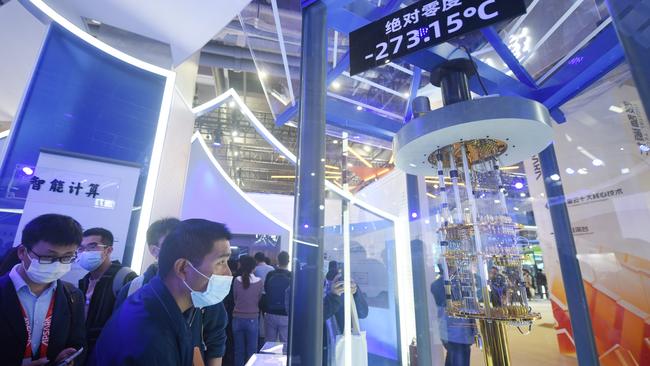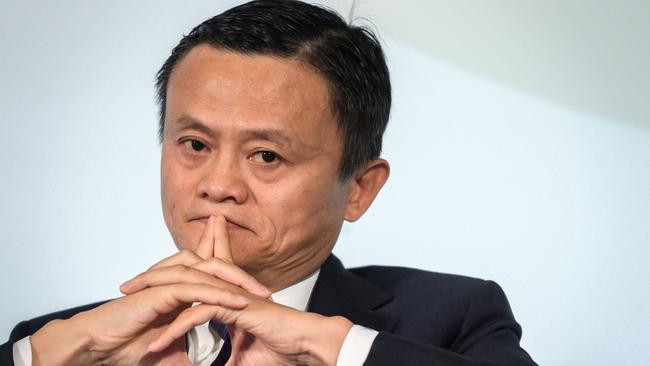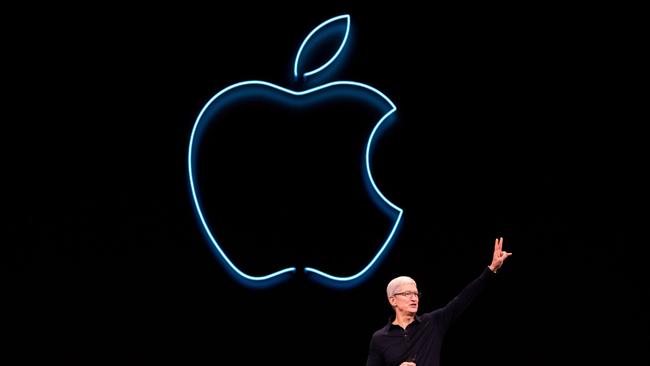Why this investor is betting on China despite big losses across the country’s tech titans
The big names in Chinese tech have plummeted in value as the country’s growth stalls, but value can still be found if you know where to look.

Chinese tech stocks are in a funk — but that doesn’t mean their growth story is over, despite the gap in valuations with their US counterparts never being wider.
That’s the view of Foord Asset Management, who says while Chinese tech stocks are nearing rock bottom prices, their earnings remain on par with the big US companies.
But much of the spotlight remains on the so-called Magnificent Seven – Apple, Microsoft, Google parent Alphabet, Amazon, Nvidia, Meta and Tesla. And rightly so, as those companies have powered a rally across the S&P 500 this year.
The index was up 11 per cent on a total-return basis – including dividends – this year as of last week. Without the Magnificent Seven, that return would have been 0.6 per cent, according to S&P Dow Jones Indices.
At the same time, the MSCI China Index – a broad gauge of Chinese shares – is down more than 14.8 per cent this year. Heightened geopolitical tensions – including a trade war with the US – as well as Beijing’s year-long crackdown on internet companies and a slowing economy, have spooked Western investors.
Alibaba – one of the biggest success stories of China’s breakneck growth over the past decade – has lost about two-thirds in value of its US-listed shares since 2020 and is now trading around 10 times earnings. This compares with Walmart’s 23 times PE multiple.

Foord global equity portfolio manager Jing Cong Xue said this was despite Alibaba generating about a 10 per cent free cash flow yield, compared with around 4 per cent from Amazon.
“We don’t even need to talk about the growth, right, the valuation gap is already the widest it’s ever been. A large part of it is driven by that China macro sentiment,” Mr Xue said.
“Obviously there’s a debate of ‘are we at the bottom yet?’ or ‘are we not at the bottom yet?’ To our mind, we are definitely closer to the bottom.”
Like Alibaba, he said JD.com was also generating a 10 per cent cash flow yield, despite growth slowing and its Nasdaq-listed shares tumbling from a peak of $US106.09 in February 2021 to $US25.65.
“This is like the lowest valuation many of these names have had since inception. We don’t even need to get to a crisis. They’re already so cheap at single digit (trading) multiples are to our minds. To our minds, they’re extremely attractive.”
So is it just the geopolitical and economic difficulties – coupled with the realisation of investing in an authoritarian communist regime – that is scaring off investors?
According to Mr Xue’s colleague Brian Arcese another reason is the MSCI’s size. “Even including Hong Kong, it’s not an enormous piece of that global equity index, so it’s actually quite easy for global portfolio managers who are sitting in London or New York and in the West to kind of dismiss somewhat out of hand what’s happening on the ground in China,” Mr Arcese said.
“And so that’s what we also feel contributes to the disconnect.”

But Mr Arcese said while the underlying drivers for both markets are fundamentally the same, there are differences which have meant the US companies have become bigger and bigger while Chinese valuations have dived.
“The biggest difference is the largely domestic focus of Chinese tech companies while leading US tech companies export their tech across the world. With Chinese tech companies more sensitive to the underlying macro trend in China.
“It is difficult to envision Chinese tech stocks not working when they are so cash generative, with these cash flows growing from a depressed base. China has experienced a prolonged macro slowdown and the economy still needs to recover a bit from currently depressed levels.
“But we are proper long term investors. And I think here is just an example of where you do need to be patient. I mean, we wouldn’t expect that sentiment to turn next quarter for example. But if you look at the risk/reward of investing in China – in certain individual companies, not in the index overall – then you are able to find companies trading at very attractive free cash flow yields still growing.”








To join the conversation, please log in. Don't have an account? Register
Join the conversation, you are commenting as Logout